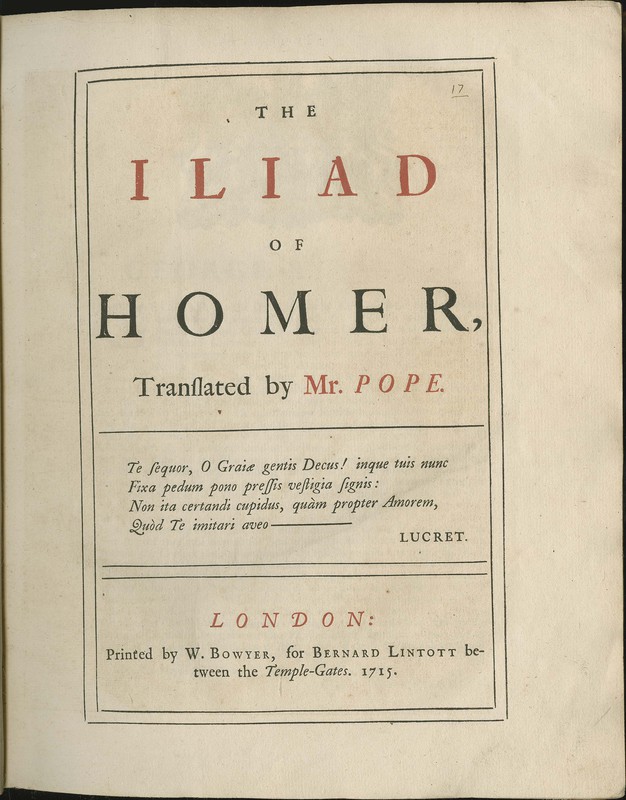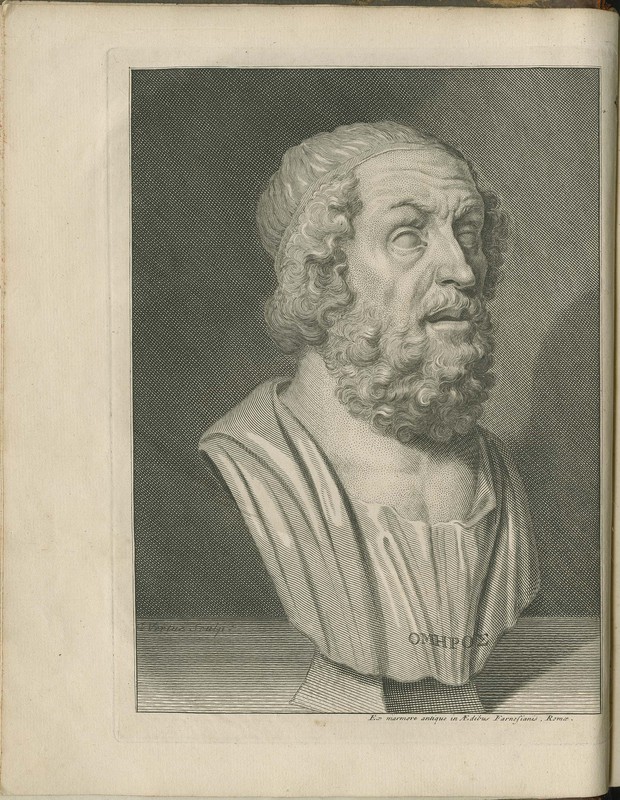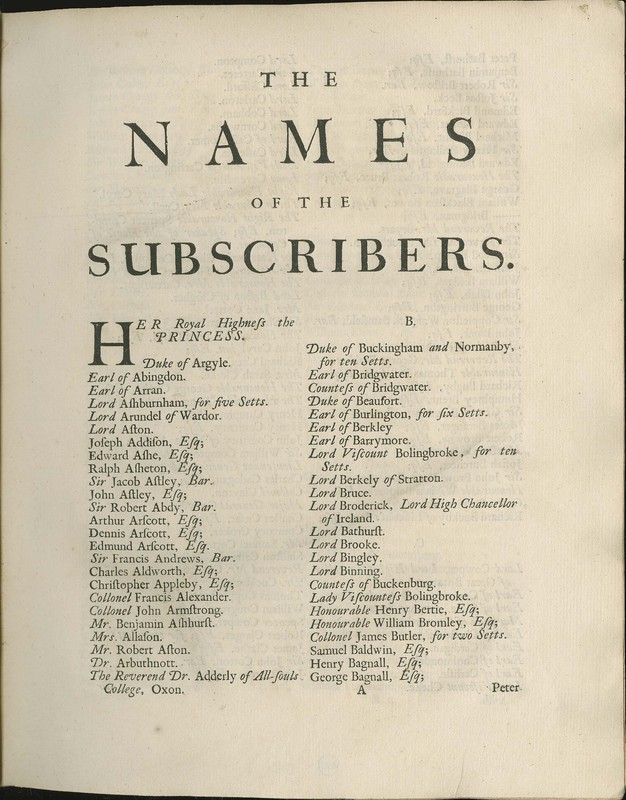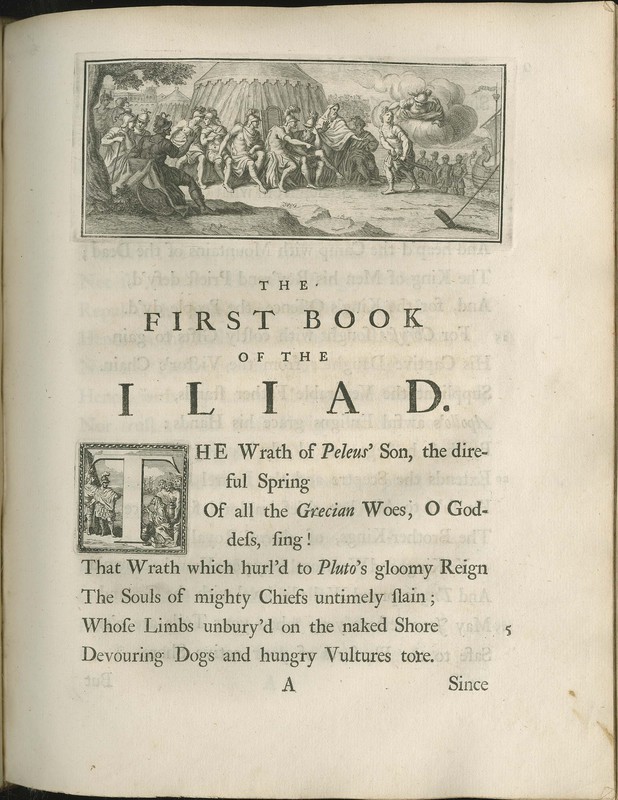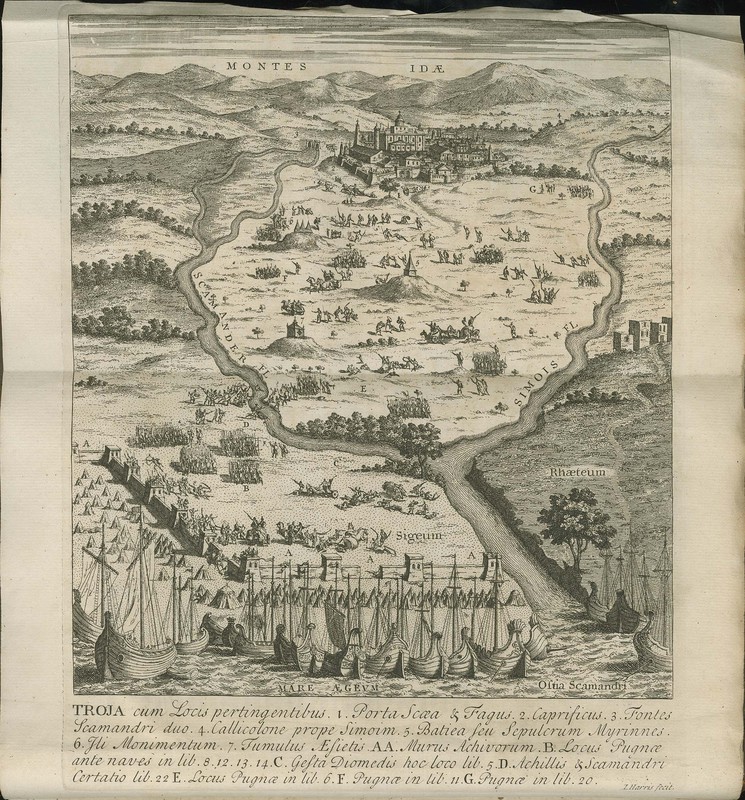The Iliad
Pope's method of translating Homer was not very different from those of the translators who were not Greek scholars. Like Chapman, Pope read the Greek through Latin translations, preferably in literal versions that somehow replicated the complexities of Greek syntax. Using these word-by-word renderings, Pope could faithfully reconstruct the Greek. Moreover, for the scholarly annotations and the tone of his translation, Pope relied heavily on the French versions by Anne LeFevre Dacier. Along with other authors of the France of Louis XIV, Madame Dacier saw the need to make Homer available to a wider public by stressing the sublime qualities of the poems. In fact, Longinus's treatise De sublimitate, as translated by the French scholar, Nicolas Boileau, was then widely read in Europe and England, including by Pope. Clearly, Pope brought those sublime elements to his English translation, generating reactions of admiration and surprise. Here are the powerful first two verses of the Iliad as translated in Pope's first edition:
The Wrath of Peleus'Son, the direful spring
Of all the Grecian Woes, O Goddess, sing!
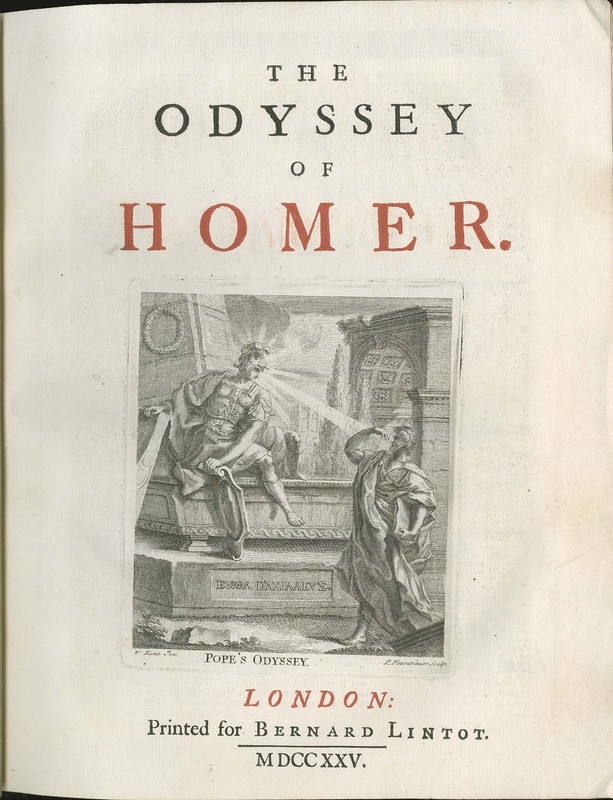
The Odyssey

